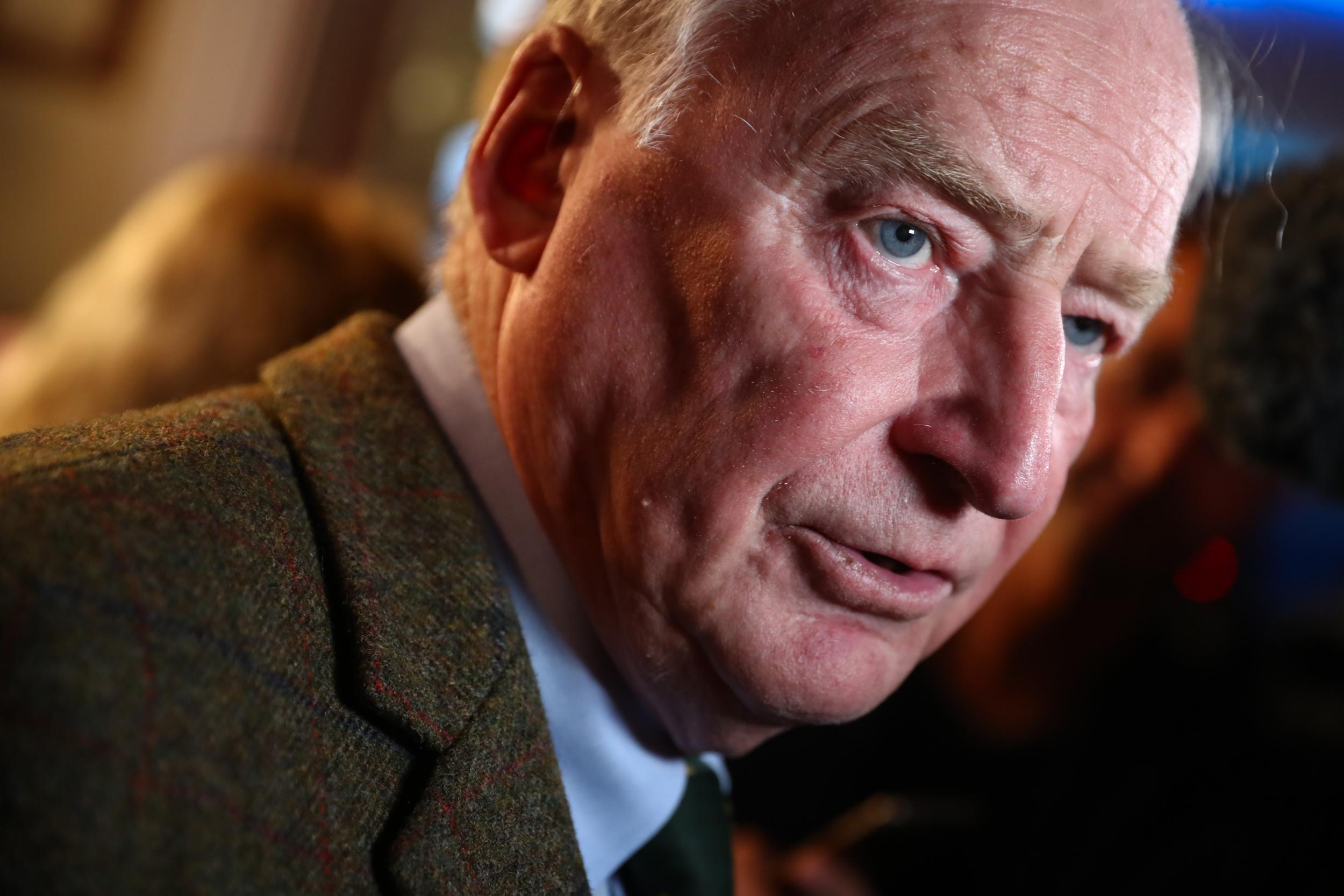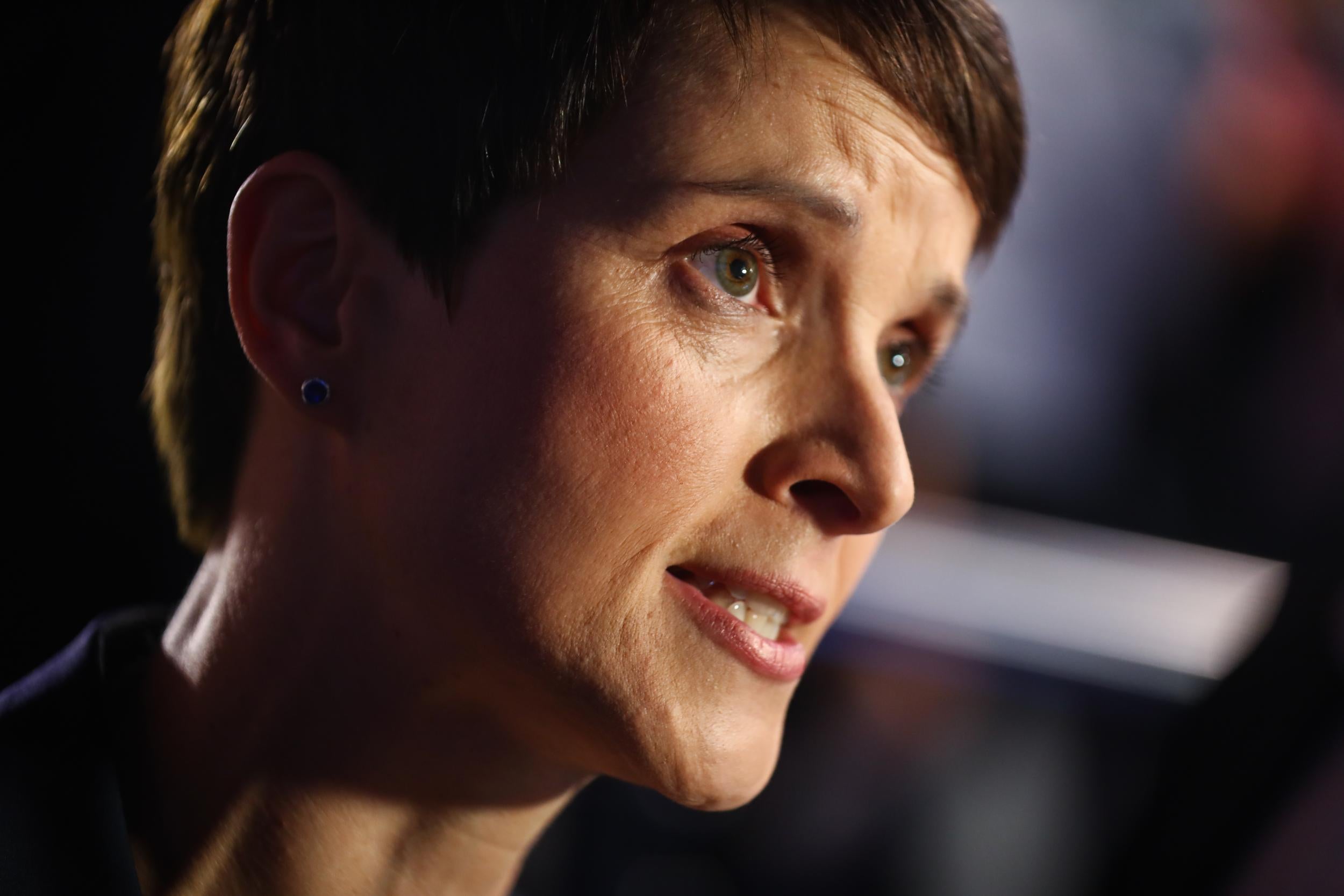Germany's new far-right party AfD says it will fight an 'invasion of foreigners'
Alexander Gauland says he will ‘uncompromisingly address’ immigration from opposition

Your support helps us to tell the story
From reproductive rights to climate change to Big Tech, The Independent is on the ground when the story is developing. Whether it's investigating the financials of Elon Musk's pro-Trump PAC or producing our latest documentary, 'The A Word', which shines a light on the American women fighting for reproductive rights, we know how important it is to parse out the facts from the messaging.
At such a critical moment in US history, we need reporters on the ground. Your donation allows us to keep sending journalists to speak to both sides of the story.
The Independent is trusted by Americans across the entire political spectrum. And unlike many other quality news outlets, we choose not to lock Americans out of our reporting and analysis with paywalls. We believe quality journalism should be available to everyone, paid for by those who can afford it.
Your support makes all the difference.Germany’s far-right party has pledged to fight an “invasion of foreigners” with its new MPs, after it won enough votes to enter the Bundestag for the first time in yesterday’s election.
Speaking in Berlin the morning after the election results, lead candidate Alexander Gauland said his party would “uncompromisingly address” immigration, on which it has campaigned relentlessly since the refugee crisis began.
But the party’s first day with representation was already plagued by infighting, after co-chair and nearly elected MP Frauke Petry quit after months of squabbles below the surface.
“One million people – foreigners – being brought into this country are taking away a piece of this country and we as AfD don’t want that,” Mr Gauland told the press conference.
“We say we don’t want to lose Germany to an invasion of foreigners from a different culture. Very simple.”
The AfD is expected to take 94 seats in the 709 member Bundestag, making it the third largest party; it won 12.6 per cent of the vote.
Pollsters and political analysts in Berlin warned against allowing the far-right outfit – which says Islam is “not a part of Germany” and routinely demonises foreigners – to hog the spotlight.
“Of course we have to stand up against their views, but if the media all focus on the AfD, exclusively pushing them into the Nazi corner, then it creates a certain effect: everyone who sympathises with the AfD in a more general way is also being pushed into that corner, and they feel treated in an unjust manner,” Matthias Jung of pollsters Forschungsgruppe Wahlen told reporters in Berlin.
“Amongst the voters who support the AfD, you don’t have a coherent radical right ideology: they are dissatisfied with things that happened, but not necessarily just the refugee crisis.
He argued that this approach “won’t do justice the various motives of voters who support the AfD”.
Dr Peter Matuschek, of pollsters Forsa, said the AfD deliberately attracted media attention by making provocative statements.
“They pursued an agenda of targeted provocation, as did President Trump,” he said.
“Once a provocative statement was made, a politician could rely on being quoted in the media the day after.”
He said that this approach “in a way reactivated” the immigration and refugee crisis as an issue during the election campaign, despite the fact that it was mostly out of the news in months leading up to the election.

In a shock move at Monday morning’s press conference, Ms Petry (one of the co-chairs of the party) told reporters in Berlin she would not sit in the party’s group in the Bundestag, effectively making her an independent MP.
“I decided after careful reflection that I will not sit with the (AfD) parliamentary group,” she said, before abruptly leaving the room.
The surprise move shocked Ms Petry’s AfD colleagues, and other politicians present indicated that they were not expecting it.
She has previously been embroiled in power struggles with other members of the party, most notably over whether she should be its designated “lead candidate” in the election. She lost out in that race to Alexander Gauland, the group’s most prominent face in the media.
Ms Petry had also publicly criticised Mr Gauland for various controversial statements he made on the campaign trail, including claims that Germany should be proud of its soldiers in the Second World War – a taboo in the country. Mr Gauland said after Ms Petry’s departure that he did not think his statements were responsible for her decision.
Angela Merkel will remain Germany’s Chancellor, but her CDU party achieved its worst result in around 70 years, while its former coalition partners, the centre-left SPD, also hit rock-bottom. Ms Merkels’s CDU won 33 per cent, the SPD 20.5 per cent, the liberal FDP 10.7, the left-wing Die Linke 9.2 per cent and the Greens 8.9 per cent.
The SPD’s leader Martin Schulz, who was elected to the post in May of this year, said as results became clear that he would not enter a coalition with Ms Merkel’s party again, and instead try to revitalise his group from opposition.
Join our commenting forum
Join thought-provoking conversations, follow other Independent readers and see their replies
Comments